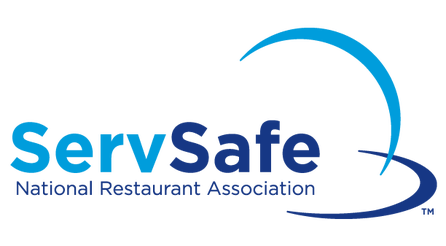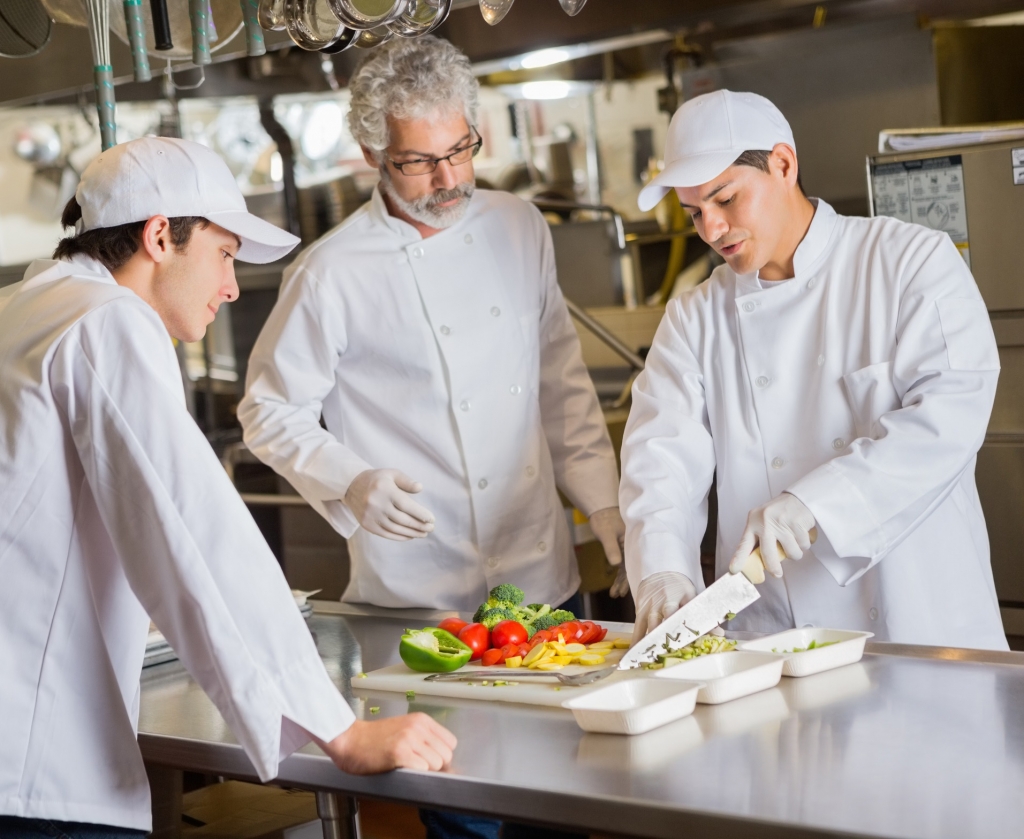Increase Your Job Opportunities: Why a Food Handler Certificate Is a Must-Have in the Culinary Industry
In today's affordable culinary landscape, the value of a food trainer certificate can not be overstated. This credential not only shows a person's commitment to maintaining food safety requirements however likewise functions as an essential asset in improving employability within the sector. As dining establishments and food service establishments progressively prioritize licensed staff, specialists geared up with this accreditation stand to obtain a significant benefit. The ramifications of this certification extend beyond mere employability; they can also affect wage potential and career progression. Discovering these aspects discloses a deeper understanding of why this certification is a tactical investment for cooking experts.
Relevance of Food Safety And Security
In the culinary market, the relevance of food safety can not be overemphasized. Making sure the safety and security of food is paramount for shielding public health and maintaining consumer trust. Infected food can bring about significant health and wellness problems, including foodborne illnesses, which can impact people and lead to substantial obligation for food facilities. Therefore, implementing extensive food safety practices is vital for any kind of culinary procedure.
Food safety and security encompasses a variety of treatments, including proper food handling, storage, cooking, and offering methods. Sticking to these practices not only minimizes the danger of contamination however additionally helps in following regional health policies. Appropriate training in food safety enables culinary specialists to acknowledge prospective risks and execute safety nets efficiently.
In addition, a solid dedication to food safety and security can boost the track record of a cooking facility, cultivating customer loyalty and company growth. Customers are increasingly mindful of food safety concerns, making it important for food trainers to show their adherence to ideal techniques. Eventually, focusing on food safety is not just a governing requirement; it is a basic aspect of providing high quality food solution and securing the well-being of customers.

Accreditation Needs
Food safety and security methods are only as effective as the individuals applying them, making certification an essential action for food trainers in the culinary market. To obtain a Food Trainer Certificate, candidates must usually complete a training program that covers essential topics such as foodborne ailments, cleanliness, personal health, and safe food handling strategies.
A lot of qualification programs are developed to accommodate different learning designs, using options for online, in-person, or crossbreed layouts. Participants need to pass an evaluation to show their understanding of the product, with a minimal passing rating frequently evaluated 70%.
The duration of training can differ, with some programs calling for just a couple of hours, while others might cross several days. After efficiently completing the course and exam, candidates obtain their qualification, which is typically valid for 3 to 5 years, depending on regional policies.
Revival typically includes retaking the program or completing a refresher program to make sure that food trainers remain updated on the most up to date techniques and criteria. Compliance with these accreditation requirements not just improves specific understanding but additionally adds to the overall safety and high quality of food service procedures.
Work Market Demand
The demand for food trainers has actually considerably raised, mostly driven by the expanding recognition of food safety and hygiene browse around this site amongst consumers and regulative bodies. With the surge of foodborne illnesses, restaurants, providing solutions, and food manufacturing companies are focusing on the hiring of qualified food trainers to ensure compliance with health and wellness laws.
Additionally, the increasing dining establishment sector, especially with the introduction of food distribution solutions and food trucks, has created an abundance of work possibilities for food trainers. The need for competent workers that can securely prepare and take care of food has become critical. servsafe food handler certificate. Furthermore, as culinary services embrace a lot more rigid security methods, the worth of a food handler certificate has climbed, making it a vital asset for work candidates
Because of this, people going into the culinary workforce are finding that obtaining a food trainer certification not just improves their employability but also places them positively in a look at this now competitive job market that increasingly focuses on food safety and security and hygiene standards.
Advantages of Certification
Getting a food handler certification provides many advantages that dramatically improve a professional's standing in the cooking industry. Primarily, it demonstrates a dedication to food safety and health, which is paramount in preventing foodborne health problems. This certification furnishes individuals with vital expertise concerning secure food handling methods, consisting click here for more info of proper storage, cooking temperature levels, and sanitation procedures
Furthermore, having a food handler certificate can improve a person's employability. Many employers prioritize prospects with this qualification, viewing it as a sign of professionalism and competency. This can cause far better work opportunities and potentially higher earnings, as qualified individuals are typically handed over with higher duties.
Moreover, the certification promotes a society of safety and security and liability within the work environment. Maintaining a food trainer certificate can open doors to more academic and profession advancement possibilities within the culinary area. servsafe food handler certificate.
Steps to Get Qualified
Obtaining a food trainer certification involves an uncomplicated process that can establish individuals on a course to improved career leads in the culinary sector. The initial step is to discover an accredited program or training copyright that uses food safety programs. Many companies provide both in-person and on the internet options, permitting flexibility in discovering.

After successfully passing the exam, people will receive their food trainer certificate, which is often legitimate for a certain period, generally three to five years. To keep accreditation, it may be needed to complete correspondence course or retake the test before the expiry date.
Last but not least, it's crucial to verify any kind of regional or state-specific laws relating to food handler accreditation, as requirements can differ. By following these actions, individuals can acquire their certification and dramatically improve their employability in the affordable culinary landscape.

Verdict
Finally, acquiring a food handler certificate is essential in the cooking sector, as it makes sure adherence to food security standards and enhances employability. With the expanding demand for certified personnel, this credential not just opens doors to job possibilities yet likewise contributes to job improvement and boosted earning possibility. Eventually, a food handler certificate indicates a dedication to security and professionalism, promoting a culture of responsibility that profits both employees and companies in the food solution field.